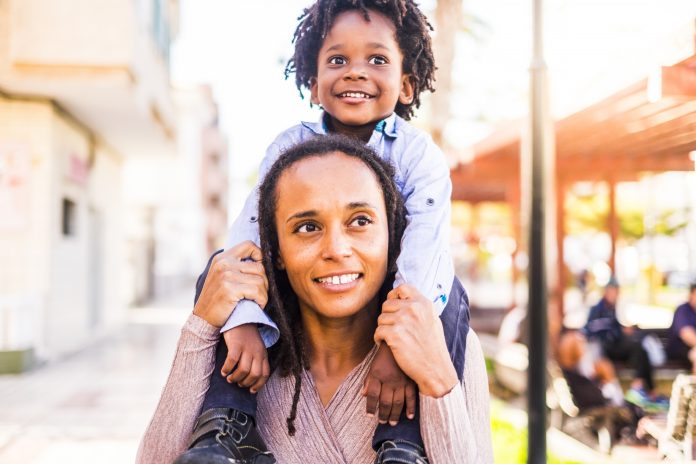Abiola Bello, author of the Emily Knight series, gives her opinion on why #BlackLivesMatter is an essential movement
#BlackLivesMatter is more than just a trending hashtag. It is a movement that is needed and overdue because Black people feel oppressed. It’s not just with the police, it’s at work and education. It is a movement that will carry on until we see real change.
I believe racism is taught and it is so important to educate young people about other cultures, diversity and respecting people’s beliefs. Everyone, especially children, need to see themselves reflected in books. In 2020, it should be easier more than ever for a Black child to find multiple books with Black people on the cover – but that’s not the case.
Publishing is an industry that only publishes 1% of books with someone of colour as a lead.
Publishing is an industry that only publishes 1% of books with someone of colour as a lead. Companies use the #weneeddiversebooks hashtags, yet don’t publish or hire ethnic people. Publishers actually believe that Black children don’t like to read! How crazy is that? This mentality needs to change.
So what can you do to dismantle racism and educate young people to do better?
1. Research before offering #BlackLivesMatter opinions
Make sure you understand the conversations that are happening around you and why Black people feel frustrated. The worst thing you can do is assume and jump in with opinions. Listen and ask questions.
2. White privilege is a real thing
White people created the race system. Black people are not saying all white people are racists, but do acknowledge your privilege. If you’re not white, you have to work harder, because unfortunately there is a huge amount of bias to people who aren’t white.
Kehinde Andrews, professor of Black Studies at Birmingham City University, defines white privilege in relation to #BlackLivesMatter:
“For me, white privilege is the benefits that you get from being white. If you are an ethnic minority there are certain disadvantages you have. For example, it’s a fact that you’re more likely to be unemployed. White privilege is not having to deal with racism.”
3. #AllLivesMatter is a silencing tactic
No one is denying the racism that so many different ethnicities face. No one is denying or that everyone’s life is important. Especially not #BlackLivesMatter.
Yet this hashtag only appears when a Black person speaks up about racism. If you are not Black you have more privilege. This hashtag is like saying all cancers matter when someone says they have breast cancer. No cancer is more important than any other but if the conversation is around Breast Cancer Month, that’s not the time to say it should be All Cancer Month.
4. Can white people experience racism?
No. Racism is prejudice plus power and influence. All white people have that, and they are not the victims. Even if they are working class, they are not suffering due to their skin colour.
5. Read books by Black and Asian writers
Learn about other cultures and experiences. There are fantastic books, from picture books up to adult fiction and non-fiction. Go to your local bookstore and ask them to recommend you some. And if they can’t, tell that bookstore to step up!
Research even shows that reading books leaves biological traces on the brain, improving the empathetic nature of a person.
6. Check your child’s school library
Schools have so much influence over young people and if you don’t see a range of books then speak up! It is the school’s duty to be diverse.
7. Don’t think that if it doesn’t affect you, then it’s not a problem
If there is any type of injustice, we all have a responsibility to speak up and demand change. Children are being killed for being Black every day. It’s heartbreaking and it needs to stop.
8. History
Now, we know schools don’t teach about Black history unless it’s Black History Month. But in order for children to know where they come from and the power that they hold, they need to be taught this history. Suggest to the school that they do a year-long project on a specific county or person that is an ethnic minority. This will not only encourage kids to learn something different but it will be expanding their awareness. I remember in Year 5, my teacher left school because of a family emergency, so the deputy head took over. He was the only other Black member of teaching staff. He had no idea what to teach us so he made us do a year-long project on St Lucia, which is where he was from. And we loved it!
9. BAME POC
BAME stands for Black Asian Minority Ethnics. POC is People of Colour.These are words to describe anyone who is not white. It would be best to not use these terms. Trust me, Black and Asian people are fine with being called Black or Asian. I once was teaching some kids and one of them was Black. They asked me why we were the only Black people in the class. Before I went to answer, a white boy said that we weren’t Black – we were coloured. Now, this boy was five, so he could have only learnt that from an adult. I explained to him that I found the word coloured to be offensive and to call us Black.
I then said, “If I’m coloured, are you un-coloured?” He looked at his arm and was very confused!
10. What can we do moving forwards for #BlackLivesMatter?
No matter what race you are, it’s your job as a parent or teacher to ensure your child has understanding of the world, empathy for others who are suffering and to know that they have a voice that they should use for change.











